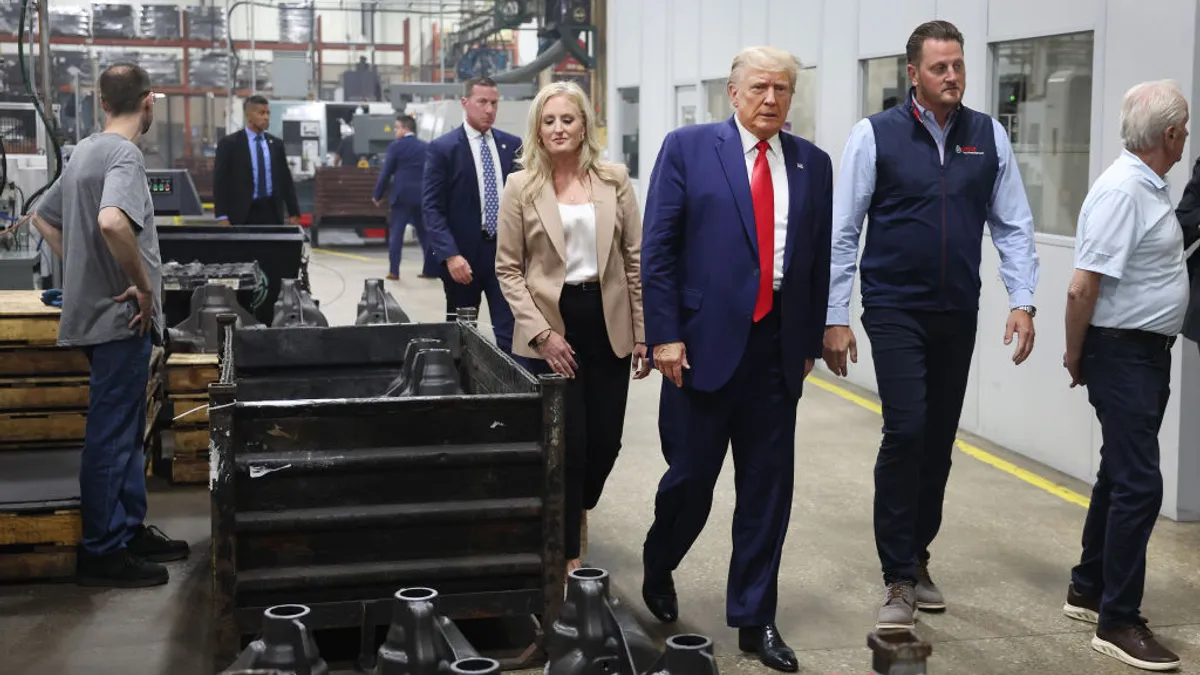Editor’s note: This story has been updated with details about the automotive tariff rate, along with duties on semiconductors and pharmaceuticals.
President Donald Trump said incoming automotive tariffs will "be in the neighborhood of 25%," per remarks made during a news conference Tuesday. The president also said the same tariff rate will be levied on semiconductors and pharmaceuticals.
"It'll be 25% and higher and it'll go very substantially higher over the course of a year, but we want to give them time to come in because, as you know, when they come into the United States and they have their plant or factory here, there is no tariff," Trump said.
On Friday, Trump said he planned to enact the automotive tariffs "around April 2" in response to a reporter's question.
The comments, which were captured in a Bloomberg video, came as he was signing an unrelated executive order. Trump said he initially slated the tariff to go into effect April 1, or April Fools’ Day, but decided to delay the plan since he is a “little superstitious.”
The automotive tariffs would come a day after the April 1 due date for federal agencies to offer recommendations on U.S. trade policy.
The Trump administration has already pushed reciprocal tariffs on trading partners and industry-specific duties as a way to rewrite the rules of global trade.
Earlier this month, Trump signed an executive order to enact 25% tariffs on foreign steel and aluminum imports. While the impacts will differ by company, many automakers rely on imported steel and aluminum materials.
Automakers and parts suppliers have expressed concern about the impact higher tariffs would have on overall vehicle production costs, and have been strategizing to mitigate the higher duties.
Meanwhile, the president ordered a 25% tariff on all imports from Mexico and Canada. While the tariffs were meant to go into effect Feb. 4, the U.S. decided to delay implementation until March 4 for both Canada and Mexico.
The move against the U.S.’s two largest trading partners would further “blow a hole” in the U.S. auto industry, Ford Motor Co. CEO Jim Farley said during a recent investor conference.
According to International Trade Administration data, 76% of the roughly 3.5 million vehicles manufactured in Mexico annually are imported into the U.S. In Canada, 93% of vehicles made in 2023 were transported to the U.S., per the Canadian Vehicle Manufacturers’ Association. In 2024, Ford alone built more than 220,000 vehicles in Mexico. The automaker manufactured nearly 55,000 vehicles in Canada through Q3 2024.
Max Garland contributed to this report.















